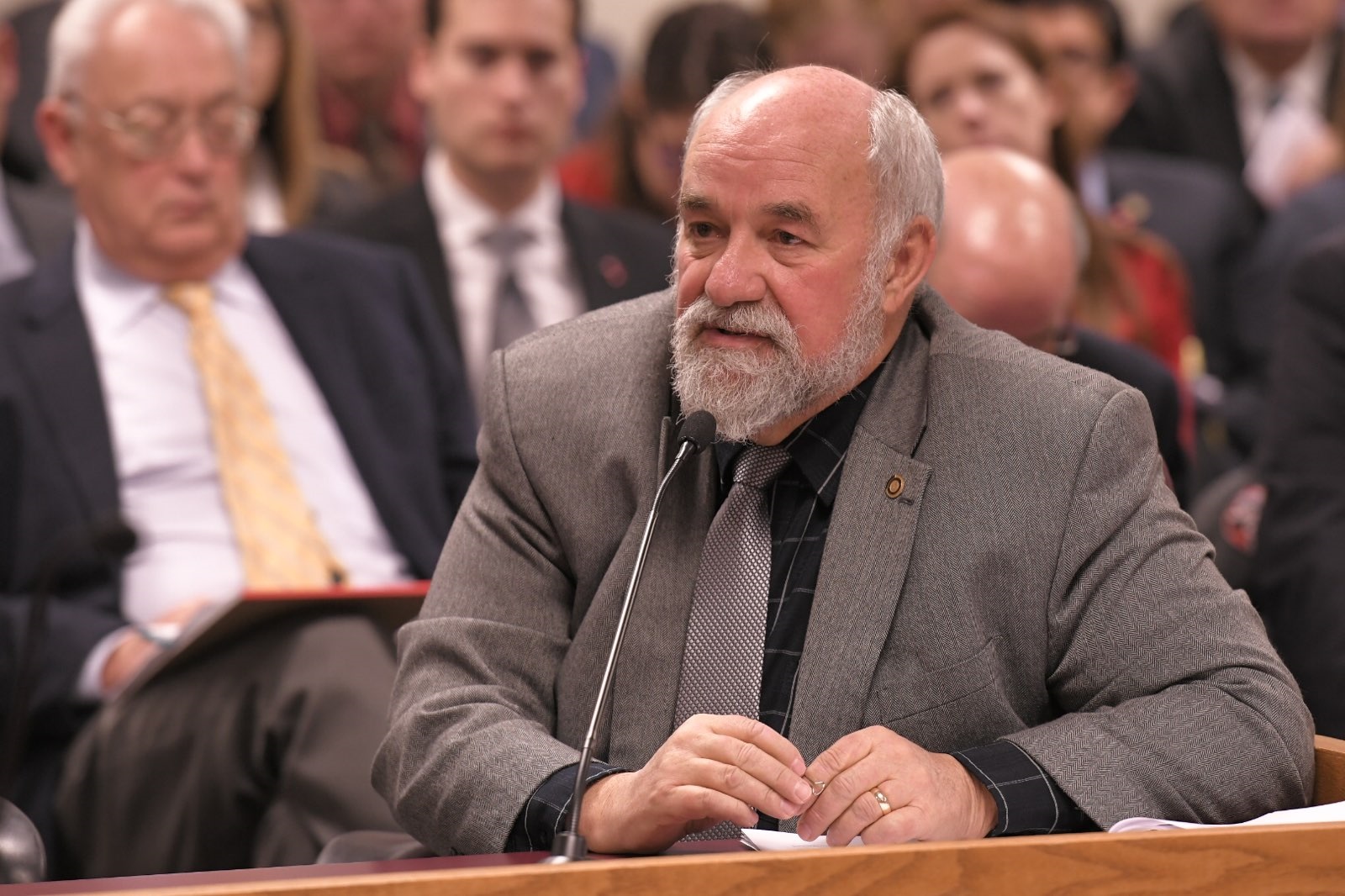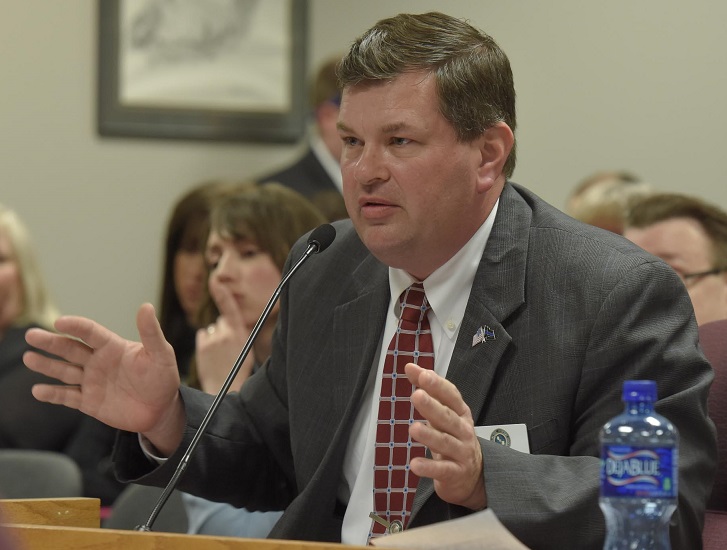Again this year the Missouri House has heard testimony on whether the state should legalize marijuana for limited medicinal use.

Cameron doctor and state representative Jim Neely (R) has proposed allowing the use of marijuana to treat terminal conditions. Neely said his House Bill 1554 would expand on legislation that became law in 2014 that allows the use of a cannabis extract, cannabidiol (CBD) oil, to treat intractable epilepsy. It would also expand on Missouri’s “right to try” law that allows doctors and patients to use drugs that haven’t completed the approval process of the federal Food and Drug Administration.
The House Committee on General Laws heard from people who said marijuana did help or could have helped their loved ones. Jane Suozzi said her daughter Kim was diagnosed with brain cancer shortly before she graduated with two degrees from Truman State University in 2011.
After studying and pursuing multiple experimental treatments Kim turned to marijuana shortly after her diagnosis.
“Kim viewed marijuana the same as all the other experimental options she pursued. She didn’t enjoy it but it gave her some additional hope and sometimes relieved her nausea,” Jane Suozzi testified. “I appreciate Doctor Neely’s efforts to afford people like Kim potentially life-extending access to experimental treatments including medical cannabis.”
The committee also heard from a number of veterans and organizations that represent them. Kyle Kisner served in the Missouri National Guard for seven years and spent tours in Iraq and Afghanistan. He said for years he was treated with opioids for pain and benzodiazepines for depression, during which time he said his personality was altered and he twice attempted suicide.
“Cannabis allows me to focus. It’s allowed me to consistently hold some kind of employment for the past few years, and for the past year-and-a-half I’ve gone back to school and I’m currently finishing up two bachelor’s degrees at Lindenwood University; something I couldn’t do when I was nodding out on three to four hours a day taking some kind of opioid or something for anxiety,” said Kisner. “There’s thousands of veterans out there that are taking that. You guys asked if this is medicine. I say, ‘Yes, absolutely, without a doubt this is medicine.’”
The Missouri Prosecutor’s Association spoke against the proposal. Its lobbyist, Woody Cozad, said for Missouri to pass legislation legalizing marijuana at any level would fly in the face of federal statute.
“Nullification was decided by the Civil War. Whether this legislature has previously attempted to nullify federal gun law or anything else doesn’t alter the fact that under our system of government, the system for which all of these veterans including myself fought, the states don’t nullify federal laws,” said Cozad, “and it just creates a confusion that at least our members can have a lot of difficulty dealing with.”
Legislators noted that Missouri already has laws that conflict with federal laws, and questioned whether prosecuting people like those who testified for the bill – veterans and those with serious medical conditions – would be a priority for any prosecutors.
Kansas City Democrat Jon Carpenter told Cozad several states have already legalized marijuana to some extent, in spite of federal law, “and I don’t see the mass confusion happening, so I’m not sure why we would anticipate having a different experience if we were to go down this path in Missouri.”
Neely said his bill, as it is written, is about improving quality of life for patients.
“I remember, I may have been an intern, a doctor telling me that his goal as he was near the end of his life as a physician, what he did in life was to provide some comfort to people, and I guess that resonated with me,” said Neely. “I think that’s what I’m after is that I’ve seen people struggle. Narcotics aren’t effective, pain control, anxiety, depression, a variety of other issues that the marijuana may be beneficial.”
The committee has not voted on Neely’s bill. Last year he filed the same language in House Bill 437 and it was voted out of two committees but was not debated in the full House.

